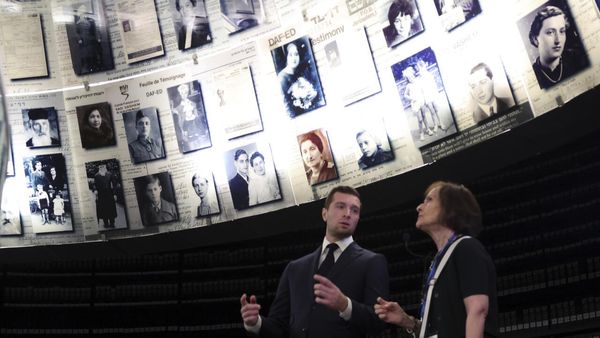ADRIAN FLORIDO, HOST:
Iceland went from having some of the worst teen drinking and smoking rates to some of the best. As June Leffler with West Virginia Public Broadcasting reports, the town of Fayetteville is trying to replicate those results.
JUNE LEFFLER, BYLINE: Fayetteville, W. Va., is known for its outdoor recreation. At a county park, hundreds of kids are trying out skateboarding, banjo picking and watersports as part of Project Adventure. Eleven-year-old Adriana Abarra loves the fishing.
ADRIANA ABARRA: One thing - it really helps with, like, patience. I figured out that whenever you fish, you get a lot more patient, and it's very nice and chill. And when you get the fish on the line, there's always this really big thrill. It's awesome.
LEFFLER: What Adriana has gotten from fishing is exactly what organizers in Fayetteville are hoping for. Fishing teaches Adriana emotional lessons and gives her a natural high. It's also a time she gets to spend with her mom and papaw (ph).
Researchers say such activities made a big difference in Iceland, where the percentage of teens who got drunk at least once a month dropped from 45% to just 5%. Katie Johnson of the Fayetteville Health Department believes the same thing can happen here.
KATIE JOHNSON: And so many people, if they can find their passion and follow it with their heart, they're too busy and just too focused to want to experiment with risky things.
LEFFLER: Kids in Fayetteville have been regularly surveyed about their substance use and related risk factors. Locals like Johnson and researchers at West Virginia University found three-quarters of kids who are not part of organized clubs or sports. Changing that could delay when kids start smoking or drinking.
JOHNSON: So the later we can delay the initiation, even by one or two years, the less likely that person is to become addicted if they should try drugs later in life, and the more likely they are to graduate from high school.
LEFFLER: In theory, substance use prevention could save money and a lot of heartache. But it's gotten a bad rap. Education campaigns like Just Say No and the D.A.R.E. program didn't work.
ALFGIER KRISTJANSSON: If that would work, we wouldn't have the obesity crisis; we wouldn't have the opioid crisis.
LEFFLER: Alfgier Kristjansson is a researcher at WVU studying the Fayetteville pilot program. He's also Icelandic and was involved in the model from its near inception. Kristjansson says Icelandic parents, schools and policymakers shook up the world kids lived in. It wasn't just one D.A.R.E. class a week.
KRISTJANSSON: The work isn't about drugs. It's about healthy life and healthy community.
LEFFLER: It took some heavy lifting. Most notably, Iceland set a nationwide curfew for teens that's still in effect today. Kristjansson says the curfew isn't a requirement of the model, it's just one way the Icelandic public sought to fix the problem. The model says communities, not experts, should find policies and interventions that folks can get behind.
KRISTJANSSON: If parents or caregivers are able to come together and engage with one another and see, well, we're all in the same boat, everybody is just wanting the best for their kids, we are much more likely to see positive outcomes.
LEFFLER: Kristjansson says the change won't be easy or quick.
KRISTJANSSON: We need to change their environment, and that takes time. And it absolutely has to include a lot of local buy-in and local involvement.
LEFFLER: The Icelandic model changed teens' behaviors abroad, and it could work in Fayetteville, but the adults in town are going to have to commit to making big changes.
For NPR News, I'm June Leffler in Fayetteville, W. Va.
(SOUNDBITE OF GEORGE FITZGERALD'S "PASSING TRAINS") Transcript provided by NPR, Copyright NPR.







